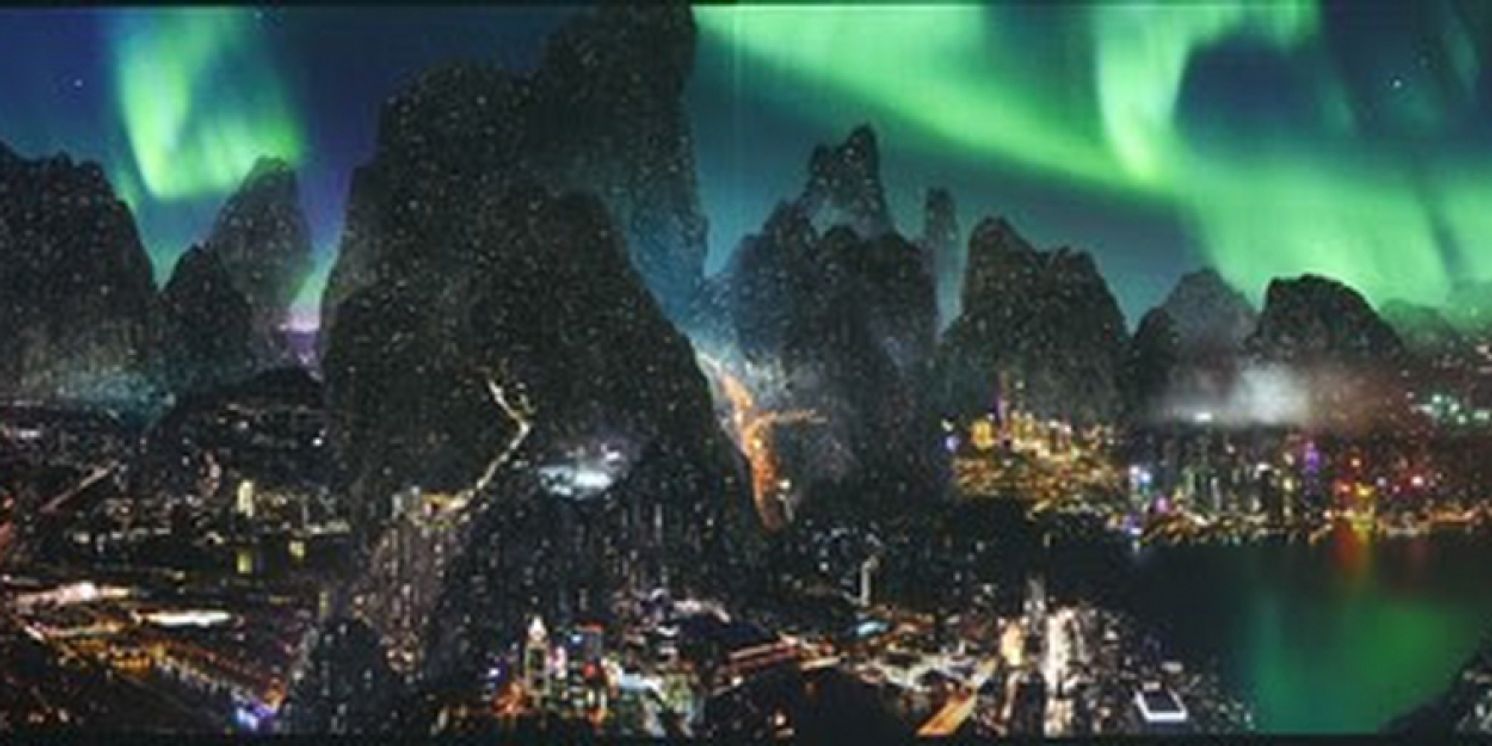'Shan Shui Reboot: Re-Envisioning Landscape for a Changing World' Comes to the China Institute Gallery in March
The exhibit is on view from March 7 through July 7, 2024.

China Institute Gallery will present a special spring exhibition, Shan Shui Reboot: Re-Envisioning Landscape for a Changing World, on view from March 7 through July 7, 2024. The exhibition highlights a new generation of artists in China and the United States who are reinterpreting traditional Chinese landscape painting in the context of today’s global social issues and climate crisis. Shan shui refers to the painting of natural landscapes with brush and ink focused on an awareness of inner spiritual philosophy.
Shan Shui Reboot: Re-Envisioning Landscape for a Changing World features the recent work of seven established and emerging artists born between 1974-1992, including Lam Tung Pang, Yi Xin Tong, Kelly Wang, Peng Wei, Fu Xiaotong, Yang Yongliang, and Ni Youyu. More than 40 works will be exhibited, and many will be shown in New York for the first time.
As guest curator Tiffany Wai-Ying Beres asks, “How do young artists use the ancient language of Chinese landscape painting (shan shui) to reflect on and respond to change in our contemporary world? In an era when humans have a direct impact on the Earth's climate and leaving distinctive marks on the geological record, possibly even to the point of extinction, these artists adopt the Chinese tradition of shan shui to conjure metaphoric, rather than purely descriptive representations of nature—visions that address contemporary life and society.”
Beres, a curator, educator, and art historian who has organized more than 30 exhibitions for institutions around the world, is interested in the transnational flow of visual culture that characterizes the global art world and the ways technology can facilitate learning and cultural exchange.
From site-specific, immersive digital media experiences to highly tactile paper installations, the work in Shan Shui Reboot: Re-Envisioning the Landscape for a Changing Worldchallenges traditional ink expressions and brings the essence of Chinese landscape to new dimensions, showcasing diverse international artistic voices.
Willow Weilan Hai, SVP, Director, and Chief Curator, China Institute Gallery, noted, “We are excited to provide a platform for these talented contemporary artists who are exploring new mediums and offering different perspectives on Chinese landscape painting.”
About Shan Shui
Shan Shui, pronounced “shan shway” (the first word rhymes with “dawn”), translates to “mountain-water” and refers to the way that humans understand and commune with the natural environment in art. An ancient art form first developed in China during the Six Dynasties period (3-6th century), traditional shan shui paintings are made using brush and ink on paper or silk. As a cultural legacy and visual language, shan shui highlights the heart of a landscape through the expression of an artist’s personal connection to nature.
Exhibition Overview
Internationally known artist Peng Wei (b. 1974, Chengdu) combines classical Chinese painting with contemporary materials. Her installation at China Institute Gallery will feature the landscape painting series Migration of Memory (2017-2021) with poetry on album leaves, displayed on music stands. She lives and works in Beijing.
Beijing-based artist Fu Xiaotong (b. 1976, Shanxi) takes a meditative approach to her work with handmade Xuan paper. In a time-consuming and intensive process, she uses needles to pierce the paper, covering it with tiny holes that eventually become images of mountains and water. The titles of the work, such as 770,100 Pinpricks, 2018, and 152,775 Pinpricks, 2023, underscore her laborious technique.
Lam Tung Pang (b. 1978, Hong Kong) renders intricate landscape drawings based on traditional Chinese art on humble wooden planks using an unusual technique: a blowtorch and charcoal. The plywood planks with the burnt images reference humanity’s relationship to nature in an era of deforestation, calling attention to the fragility of the natural world and our individual connection to place. He lives and works in Vancouver and Hong Kong.
Yang Yongliang (b. 1980, Shanghai) merges Asian aesthetics with digital imaging techniques to create immersive slightly dystopian panoramic scenes. This will be the first time that Yang exhibits his post-pandemic color-filled landscapes in Manhattan. He lives and works in New York and Shanghai.
Shanghai-based artist Ni Youyu (b. 1984, Jiangxi) plays with time and scale. Playing with scale, he paints miniature landscapes on hammered coins for his Galaxy series, 2015-2023, arranged on a dark background like a starry night. He also combines found photographs to create collaged images with serendipitous moments where unrelated images are joined together to create timeless visions.
Deeply interested in science and the natural world, New York-based artist Yi Xin Tong (b. 1989, Lushan) works across media, including video, music, ceramic, printed word, and textiles, to name a few. For China Institute Gallery, he is creating two site specific tapestries filled with elements of traditional and contemporary landscapes from his hometown of Mt. Lu.
Using newspapers, ink, pigment, xuan paper, and resin, New York-based Kelly Wang (b. 1992, New York) will show richly layered paintings and sculpture of landscape forms inspired by her father who passed away during the Covid pandemic.
Videos

